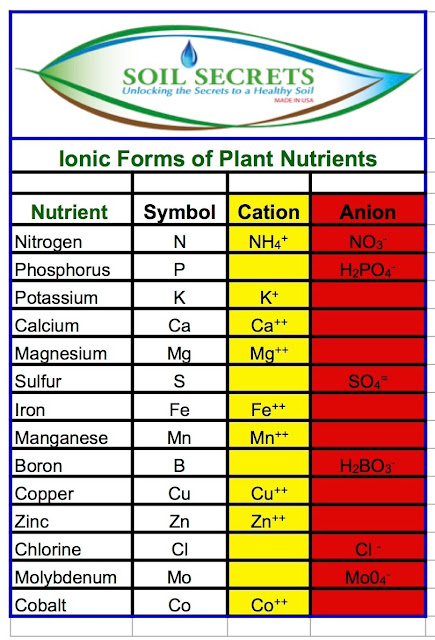In the red column are the nutrients called Anion, which have a negative charge opposite of the Cation nutrients. The soil has a negative charge of various strengths called the CEC or Cation Exchange Capacity. For example sand has a weaker CEC than clay therefore clay can hold more Cation nutrients than sand. However the negative charge of soil will repel the nutrients that already have a negative charge, the Anions in the soil therefore cannot hold onto those nutrients. TerraPro however can hold both Cations and Anions by having the Mechanism of Action of a Chelation Overlay.
Recently I was in an Albuquerque retail nursery where a fertilizer was being sold that stated it was formulated for alkaline soils of the Southwest. It contained high levels of iron and sulfur, plus the N, P and K major nutrients. Do any of the readers care to comment on this type of product? Pros, Cons, etc. I have my take on it, but I'll entertain what you want to say about it. Michael Martin Meléndrez

